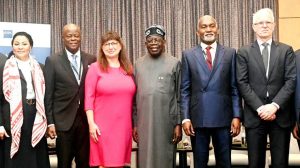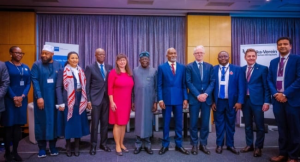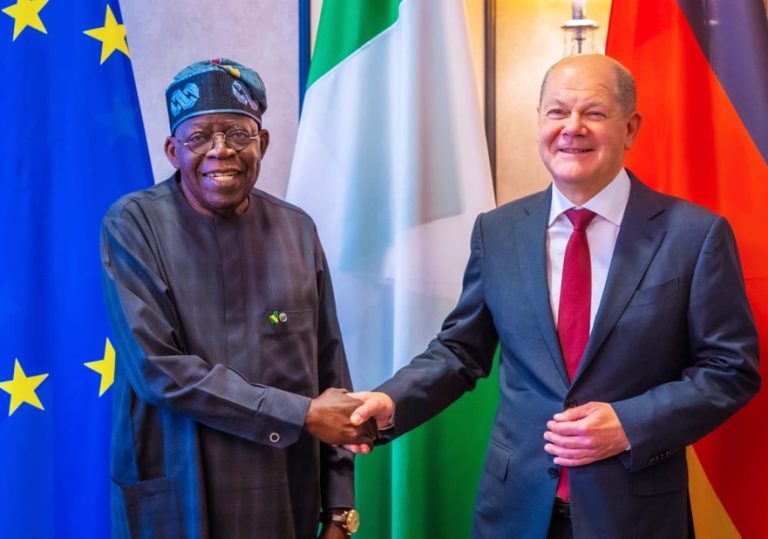President Bola Ahmed Tinubu’s attendance at the 10th German-Nigeria Business Forum in Berlin was a pivotal moment witnessing the signing of two groundbreaking Memoranda of Understanding (MoUs) between Union Bank of Nigeria and DWS Group. These MoUs aim to revolutionize the landscape of renewable energy, particularly solar power, in both Nigeria and Germany.
The specifics of the first MoU delineate a pathway for energy export from Nigeria to Germany, utilizing the African Continental Free Trade Area (AfCFTA) and the European Union – African Union Partnership. This agreement empowers Union Bank of Nigeria to oversee the exportation of solar-generated electricity to Germany via established conduits such as the West African Power Pool (WAPP) and the Trans-Saharan Power Transmission Corridor (TSPTC). In tandem, DWS Group commits technical and financial support, fortifying the development and operation of these solar plants.
 The second agreement marks a significant investment of $500 million by DWS Group into Nigerian renewable energy projects, mainly focusing on solar initiatives. This is a welcome boost for Nigeria’s economy, as it will create new opportunities for income, employment, and improved access to affordable electricity. It will also help Nigeria diversify its energy mix, reduce its dependence on fossil fuels, and mitigate its environmental impact. Union Bank of Nigeria and local stakeholders will work together to identify, finance, and implement these projects.
The second agreement marks a significant investment of $500 million by DWS Group into Nigerian renewable energy projects, mainly focusing on solar initiatives. This is a welcome boost for Nigeria’s economy, as it will create new opportunities for income, employment, and improved access to affordable electricity. It will also help Nigeria diversify its energy mix, reduce its dependence on fossil fuels, and mitigate its environmental impact. Union Bank of Nigeria and local stakeholders will work together to identify, finance, and implement these projects.
These agreements are not only beneficial for Nigeria and Germany, but also for the world at large. They align with both countries’ commitments to the Paris Agreement on climate change and the Sustainable Development Goals, which aim to ensure a sustainable energy future for all. They also reflect the spirit of international collaboration, which is essential for tackling the challenges and seizing the opportunities presented by the energy transition and climate crisis.
President Tinubu deserves praise for his visionary leadership and his unwavering support for these agreements. He has shown that Nigeria is not only a willing partner, but also a leader in renewable energy, particularly solar power. He has also reaffirmed Nigeria’s determination to embrace a sustainable energy future, and to cooperate with other nations in achieving this goal.
The signing of these agreements is a milestone in Nigerian-German relations, and a testament to the strength and potential of their partnership. It is also a sign of hope and optimism for the future of renewable energy, and a step towards a brighter, greener future.

